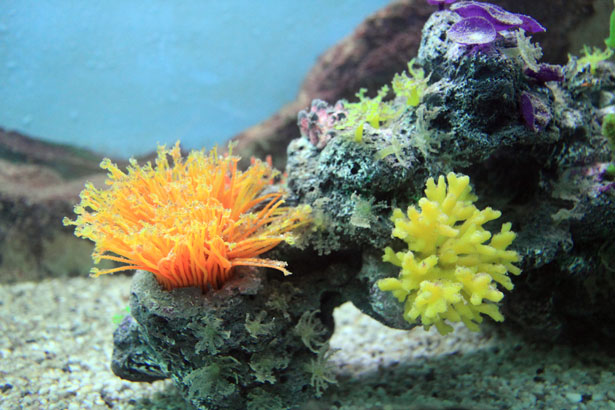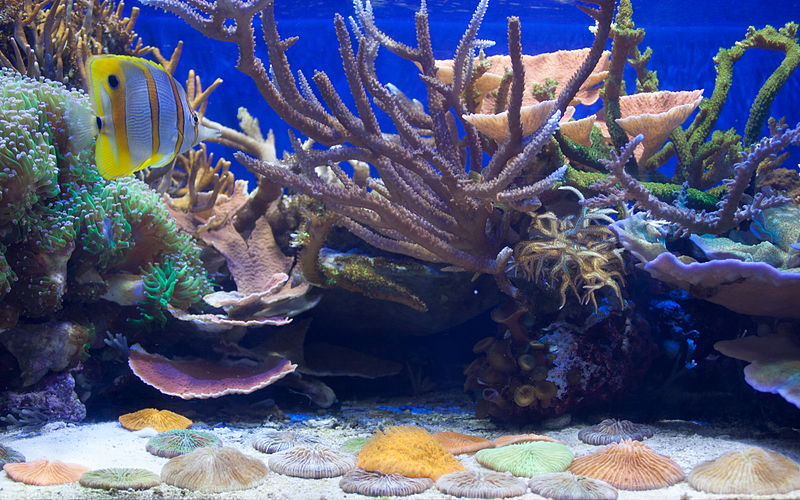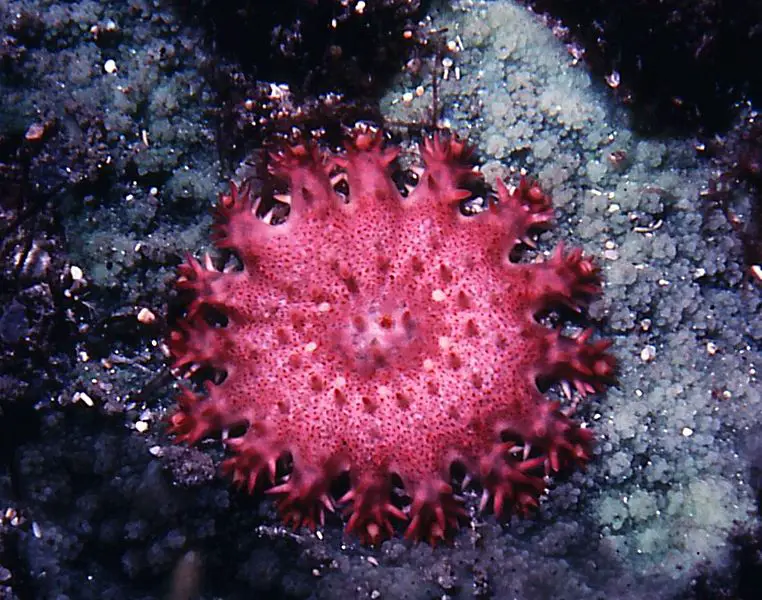Introduction
Have you ever wondered how corals eat and take in nutrients? A lot of people don’t realize that corals are animals, and they need to feed just like other animals do – so how does this happen?
Corals eat by taking in microorganisms and through a relationship with a special kind of algae. The algae are known as zooxanthellae, and it lives within the coral itself. During the day, it takes in sunlight and converts it into energy, which it supplies to the coral. Corals also feed on zooplankton at night, digesting these microorganisms and converting them into food.
In this article, we’re going to learn more about how corals get the energy to survive, and the unique ways in which they feed. They are unlike any other kind of animal – so let’s learn about their extraordinary processes.
Do Corals Make Their Own Food?
Corals get food from two sources: they take it in themselves from the water, and they receive energy from algae that live in their polyps. The two processes happen at different times. The corals feed directly at night, while the algae produce energy during the day.
Corals are not able to photosynthesize directly, so they do not make their own food in the same way as plants do. Instead, they have a symbiotic relationship with a special kind of algae, and this produces energy from the sun for them.
They make their own food by catching microorganisms in the water and digesting them. This supplements the energy provided by the algae, and gives the coral additional nutrients.
Do Corals Have A Digestive System?
Corals do have a digestive system, yes. They are simple organisms, but their polyps are largely made up of digestive filaments that break down the food taken in by the polyp’s mouth. Both food and waste are taken in and pushed out at the same opening, propelled by a ring of tentacles that push the organic matter in the correct direction.
A coral polyp depends upon its digestive filaments to break down organic matter and process it. It also has a stomach in the center, which helps in the processing. The digestive system is far simpler than you might see in that of other organisms, but it is certainly present and capable of serving the same purpose.
Do Corals Eat Algae?
Corals do not eat algae, no. Instead, they harbor a kind of algae known as zooxanthellae within their polyps, keeping them safe from other creatures and providing them with carbon dioxide. The algae return these favors by producing excess food from the sunlight, and passing on nutrients to the coral.
Not all corals have this relationship, but most do. This gives them an edge in a challenging world, helping them to take advantage of the sunlight and produce energy in the daytime, as well as feeding at night.
Do Corals Eat Phytoplankton?
Corals do not really prey on phytoplankton, but they do consume small amounts, and it is very important for their survival. There are two reasons for this.
Firstly, phytoplankton contains some essential vitamins and nutrients, including fatty acids that the coral needs to survive. They do not need to consume a lot to get the benefits, but they do require a small quantity, or they may become deficient in vitamins like vitamin C.
Secondly, phytoplankton is the food for zooplankton, which corals do eat in larger quantities. If there is a deficit of phytoplankton, the coral is at risk of starvation even though it does not depend directly on this microorganism for most of its food.
It is therefore important to make sure there is enough phytoplankton available if you have a reef tank with corals in it. This will keep them healthy and ensure they are getting the nutrients that they need.
Do Corals Eat Zooplankton?
Yes, corals eat zooplankton, and these are their main source of food. During the day, the coral polyps shelter inside their tough exterior casings and do not hunt at all. The algae are busy producing nutrients, and the coral polyps are safe from predation if they remain inside their casings.
However, at night, they come out of these skeletons and use their tentacles to hunt. These tentacles are long and are equipped with stingers, like a jellyfish’s tentacles. They will stun and capture food as it passes by the coral, and the tentacle can then draw the food down into the polyp.
The coral will digest it inside its polyp, extracting the nutrients that it needs to survive. Corals may feed on other microorganisms in the water too, including floating eggs, but they can only take in very small quantities of food with their tentacles.
When daylight comes, the coral polyps will withdraw again, back into the stony secretions, away from predatory fish.
What Does Coral Eat In Aquariums?
You should offer your coral a variety of foods to keep it happy and healthy. In the wild, corals will pick up all sorts of debris drifting by in the water, so the more options you can offer, the more complete the diet is likely to be.
Many people choose to feed their corals on things like chopped up clams, krill, shrimp, phytoplankton, thawed plankton, tiny fish, and bits of shrimp. Your coral will ignore or spit out foods that are not suitable for it, and you need to be careful not to allow too much food to build up, or the nitrate levels might spike.
You should research your specific kind of coral and the food that it needs to ensure you are providing a complete, suitable diet. For example, Large Polyp Stony corals can eat larger chunks of food than Zoanthid Corals, so food preparation as well as type is important to consider.
Conclusion
Understanding how corals eat and what to provide them with, as well as the lighting required for their algae to flourish, is critical if you want a healthy saltwater aquarium. Make sure you have done thorough research into the kinds of coral you wish to keep before you set up your tank.



